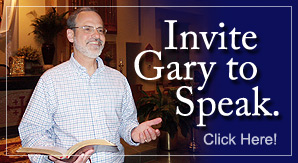What does God want me to do?
This is a question that many of us wrestle with frequently. When I was trying to discern whether to go full time as a Catholic Evangelist, I was very happy to discover that St. Ignatius of Loyola had devised a set of guidelines for making decisions. Unfortunately, I found his recommendations to be a bit complicated. With some careful reading and the help of some other books, however, I was able to come up with a simplified version of St. Ignatius’ 3 Modes of Discernment. If you’re trying to make a decision and you truly want to do God’s Will, try these 3 steps in order. If the first one works for you, there’s no need to move on to the second. If the second one works, there’s no need to go on to the third. If you get to the third mode, keep trying…it WILL work!
Before beginning, you have to commit to three things:
1. You must be willing to choose the option that God wants, even if it’s not what you want.
2. You must desire above all to please God and your choice should reflect that desire.
3. You must immediately rule out any options which are immoral (go against Church teachings).
Now let’s look at the 3 Modes of Discernment as developed by Saint Ignatius of Loyola:
1. No Doubt – You positively know that one of the options is God’s Will and that you have no doubts at all. This one is hard to explain, but you understand it when it happens. It occurs when you feel completely drawn to an option and you KNOW that it’s God’s Will.
2. Heart’s Desire – Slightly more complex, this mode of discernment involves consolations (spiritual joy, love, hope in things of above) and desolations (sadness, lack of love, spiritual dryness). St Ignatius recommends that if we don’t receive clarity in the first mode (clarity beyond doubting), that we dwell on the second mode. According to St. Ignatius, the person should attentively observe “when he finds himself in consolation, to which part (which option in the choice) God moves him, and likewise when he finds himself in desolation.”
For example, if you are trying to decide between keeping your current job or accepting a new job offer, determine which job attracts you during periods of consolation. If you repeatedly feel called to keep your current job during periods of consolation, there’s a good chance that this is what God wants you to do. Additionally, during periods of desolation, you should expect to feel a call to accept the new job offer (the opposite choice). The key is to be patient (this mode of discernment could take months or even years) and look for a reoccurring pattern. Consolations and desolations are a normal part of the spiritual life and can be very useful in discerning God’s Will.
3. Pros and Cons – If the first two methods don’t reveal God’s Will, it’s time to move on to the 3rd Mode of Discernment. It’s recommended by St. Ignatius that this mode be used during periods of tranquility (when the soul is at peace and free from passions which may influence your decision).
This method involves making a list of the pros and cons of each option. These pros and cons should be spiritually based and not be based on personal preferences such as financial considerations or level of comfort. Once you create this list, the following two ways can be used to arrive at a decision:
First Way
1. Place before myself the options.
2. Without any attachments, say “whatever you want, Lord”.
3. Ask the Lord to move you toward the option that will bring Him greater glory.
4. Consider the spiritual pros and cons of each choice.
5. Make your choice.
6. Turn to the Lord and place your choice before Him, asking Him to confirm it by granting you peace.
Second Way (to be used if the first way doesn’t provide clarity)
1. Do I seek to choose solely out of love for God?
2. How would I advise a person I’ve never met before if they were faced with the same choice?
3. Which option would I choose at the moment of my death?
4. On the day of my judgment, which option do I wish I had chosen?
5. Make your choice.
6. Ask the Lord to confirm your choice.
Please remember that discernment can be a complicated process and can take a long time to unfold. Be patient and make it a point to frequently meditate on the Gospels. In addition, a spiritual director or a trusted friend can be very valuable in the discernment process.
I have tried to simplify the principles of Saint Ignatius so that they can be a little less intimidating. For more information, I suggest reading the following books:
Discerning the Will of God by Fr. Timothy Gallagher
How to Listen When God Is Speaking by Fr. Mitch Pacwa









Pingback: What does God want you to do? Three steps to help you discern His will... - Christian Forums
let’s say i have a friend, who has a great Christian relationship, chaste, respectful, doing well in prayer and all that jazz. BUT sometimes she feels called to religious life, but is scared of being “lonely,” really likes her boyfriend and knows he cares for her, and likes the appeal of having a family. and on numerous occasions she’s come to the conclusion that what God primarily wants is for her to be Christian, love and follow Him, and having a Christian relationship and hopefully marriage is also a good way of living out His will. yet what if the marriage road is a good road, but the religious life is the BEST road for her? what then?
Great question, Sirenia. St. Ignatius of Loyola originally developed these modes of discernment for those who were contemplating religious life. Your friend can use these 3 modes of discernment to find out which state of life would bring God greater glory. I would also recommend the book Discerning The Will Of God by Fr. Timothy Gallagher (the link is in my blog post), as he presents several real life examples which mirror your friend’s situation. Also, a good spiritual director would be invaluable.
God Bless,
Gary
Your friend might want to visit different religious orders, good, faithful, ones of course, both of the contemplative and active side. If she spends some time living religous life with sisters her decision might be clarified.
I am in a civil marriage (my “husband” is not Catholic, though he was into a Christian denomination as a child), and I have been unhappy in the relationship from the beginning. I had doubts about him being the right one, and our life together has only confirmed my doubts, yet I feel trapped. I discerned that leaving would be best a couple of months ago, and I was at peace. But I have since decided to stay put, and ignore my doubts. Of course, they have come full circle, and I am unhappier than before. Yet I feel trapped, as if I cannot get out, and if I were to be with the right guy, I won’t be good enough because of my past. But wait, here’s the kicker: my good friend happens to be a lay theologian of sorts. He runs the RCIA at our parish, and we have been friends since we met in choir. We are almost identical in our tastes and in our upbringing (only he’s much older), so I call him my big brother and have gone to him when I needed advice from a Catholic point of view. Well, I’ve heard from 5 family members and friends (including my civil husband) that I should’ve married this friend. And when I hear each one say it – each one says it of his/her own accord and didn’t know anyone else had said the same thing – I look up and mentally ask God if He’s trying to tell me something, which I then dismiss. The most recent person to tell me I should’ve married my friend? My ex fiance who is in love with me. Is it any wonder why I’m so confused? Even if it’s the wrong decision, it’s just so much easier for me to stay put. It’s probably wrong, but at least I know what I’m getting into. Anything you can add to this would be helpful, and if you can’t add anything, then please send some prayers my way! God bless and Thank You!!
I know enough to admit that this is way out of my league! Is there a parish priest that you can confide in? I really believe you should speak to someone objective about this matter. I will definitely pray for your situation.
God Bless,
Gary
@JessicaRabbit: I agree with Gary that you should speak to someone who has objectivity and Catholic credentials about your situation – and a parish priest is the first place to go. However, I also think that there are several other things that you should consider (and I hope they don’t come across as harsh – I’m only trying to be factual/truthful).
First: you claim that you are in a “civil” marriage. This means that you were not married in the Catholic Church or by a priest or deacon, nor was your marriage convalidated. If this is true, then you are not “married” in the eyes of the Church, only the state. In the eyes of the Church, you are living with a man who is not your husband – and the old way of saying it is that you are “living in sin.” You should be attending Mass, but not receiving the Eucharist. Should you decide to divorce, you would need to get what’s called a “procedural annulment” (it’s quite simple) in order to get married in the Church at a later date.
Second: you didn’t state your age, but my experiences with family and friends has taught me that you shouldn’t have your eyes on someone else when you’re in a committed relationship with another. I believe it is prudent to assess the relationship that you are in without other distractions (and your friend is a distraction – you probably shouldn’t be around him until you’ve gotten this figured out). If your marriage is not working but you actually have a sacramental marriage, then you should seek help and counseling. If you are truly only civilly married, then perhaps you should get out of it. You stated that you had made this decision and were at peace with it. What changed?
Third: the right thing to do is usually the most difficult choice.
Fourth: it sounds like you may be afraid to be alone. (What I’m going to say next may sound harsh, but it is true.) If this is the case, then no relationship that you get into will really work out, because you have not matured into a whole person. Healthy relationships are dependent on the two people being their own persons; if they’re not, they’re codependent and unhealthy. I’ve often explained it this way – are you with that person because you need them and can’t live without them? Or, are you with that person because you want to be with them? The correct answer would be the second choice – you WANT to be with them. As an example, I am married and love my husband deeply, I want to be with him but I don’t need him – if he were to die, I could live on my own. I would miss him terribly and I’d definitely grieve, but I’m confident I can be on my own. For marital relationships, the Scriptures tell us that the 2 shall become one flesh – not 1/2 and 1/2 become one flesh. Therefore, maturing into a whole person is one of the best ingredients for a successful long-term relationship.
Fifth: if you decide to divorce, you should probably give yourself at least a year to a year-and-a-half before getting into another relationship, no matter how compatible you think the other is. If you don’t think you could do this, then see #4 and ask yourself what you’re really afraid of.
I will keep you in my prayers!
Catholic Teacher:
1). I am merely civilly married, with no permission from the Church to have had the ceremony whatsoever. The only person involved in the Church that knows about it is my parish priest, and I plan to speak to him soon. It was thrown together in 2 weeks, officiated by a judge, and I went through with it knowing the immense amount of doubt I had.
2). I am under 30, and I am not committed to this relationship, but I feel trapped, hence the decision to stay put despite the unrest the decision gives me, and because of some pressure from family and friends.
3) & 4). I prefer to leave and be out on my own. While it does scare me somewhat, I am not turned off by it. But for legal reasons, I have to stay where I am at the moment.
5). I am dying for singledom, to tell the truth. I want to take a minimum – notice I said “minimum”: I would be happy with longer! – of 6 months to be single, go back to college, and establish myself. I want a break from relationships, as I’ve had back-to-back relationships for a few years now, culminating in the train wreck I call a “marriage.”
And no, you were not harsh. You only told me what I already knew. I truly appreciate your candor and your prayers!
JessicaRabbit
Thank you very much. You’ve helped me a lot.
My pleasure, Susanna. Glad it helped!
God Bless,
Gary
Ignatius has of course a good reputation among philosophers and Catholics, but in this case he missed a better source of advice.
“Let us all hear together the conclusion of the discourse. Fear God, and keep his commandments: for this is all man:” Ec 12:13, Douay (JB has “… for that is the duty of everyone.”)
So the quest predates Christianity, and Solomon had a partial answer.
For our day, the Greater Solomon had this thought, which shows the seriousness of the problem: “It is not anyone who says to me, ‘Lord, Lord,’ who will enter the kingdom of Heaven, but the person who does the will of my Father in heaven. When the day comes many will say to me, ‘Lord, Lord, did we not prophesy in your name, drive out demons in your name, work many miracles in your name?’ Then I shall tell them to their faces: I have never known you; away from me, all evil doers!” Mt 7:21,22, JB Evil doers? Who actually did these powerful works, and in his name? But note that they failed to discern and do the will of his Father in heaven.
That will is expressed nowadays through the record left behind by his Son and the Son’s disciples. One such is a statement in the imperative- a command- at Mt 28:19,20. ‘Go; teach’ he says. Teach what? His most common topic was his Father’s Kingdom, as in the paternoster at the beginning of his earthly career. Mt 6:9,10 He came back to it at the very end: “This good news of the kingdom will be proclaimed to the whole world as evidence to the nations. And then the end will come.” Mt 24:14. “To the nations” meant to all non-Jews; a worldwide message.
This was the work from the beginning: Acts 1:3; 8:12; 19:8; 20:25; 28:23. So: we may conclude that a Christian today will be found doing these things, in whatever time is available to him. For most of us that means time available after the scriptural obligation to support our families (1 Tim 5:8).
Thanks for sharing, Doug, but we still need help to discern whether or not to buy a new car, change jobs, send our children to public or private schools, terminate a relationship, relocate to a different geographical area, etc. As Christians, we should seek to do God’s Will whenever we make an important decision. The general rules of discernment (as supplied by St. Ignatius) can be very helpful in these and other areas of discernment.
God Bless,
Gary
Sorry; typo. Should be after paternoster.
Your example in Method 2 hits home. I had made a job choice and gone with the new job in July of this year. Now I am wondering if it was the right choice.
I’m a bit fuzzy on what you mean by consolations vs desolation. In your example, do you mean when the person feels love, hope, spiritual happiness, etc. when they think of their job, or just life in general? Same question for the desolation.
Also, I understand being patient, but when it comes to making a job choice, rarely does one have months or years, but usually days or maybe weeks. THis is especially true in today’s economy where jobs are hard to come by in the first place, and depending on one’s profession, geographic preference, age, salary requirements, etc., it may be years before another viable opportunity presents itself. Thoughts?
Doug – Consolations and desolations could be experienced for no apparent reason. For instance, one day you go to Mass and you feel “on top of the world”. During that time, St. Ignatius recommends that you should reflect on which choice seems right. Conversely, try it when you’re feeling spiritually dry. Look for a pattern and see if it is consistent. You can also do as you said and present each choice to God in prayer…sometimes He will respond by sending you a consolation.
As for patience, I recommend that you just do the best you can and remember that most decisions are reversible or changeable. Much of this has to do with trusting in God’s providence, which is often difficult for us. If you need a more detailed explanation, please feel free to email me (gary@followingthetruth.com).
Peace,
Gary
I am a Catholic mother of 6 children, with the 7th on the way. My children are currently in public school. I have discerned that I should homeschool them, an I have absolutely no doubt about this. However, my husband does not agree, and insists that they remain in public school. This is extremely difficult for me. Any advice?
Heidi – My wife and I discerned exactly the same decision last year and reached the conclusion that we homeschool our girls. We both prayed about it, spoke with several people and strongly believed that it was what God wants. We had a few bumps in the road, but we now know that it was the right decision. Fortunately, we were both in agreement. If one of us felt it was not the correct move, we wouldn’t have done it. I recommend that you both pray about it and continue to discuss the matter. I’ll keep your situation in my prayers.
God Bless,
Gary
Thank you! I really appreciate your prayers.
Heidi: One word: novena !!
Hi Sally,
I tried a novena to St. Therese last summer, but didn’t feel like I got an answer. Who do you think I should say a novena to?
I’m also a little confused about “consolations vs desolations.” I’m in the midst of making a large move (across country) after a long period of unemployment. I feel I’ve been “prompted” to move, however I can’t say I feel completely “comfortable” with my decision.
The deciding factor for me was a continuation of doors being slammed in my face. Not one, but many. For a while, I thought it was a test of my perseverance, which I’ve always seemed to pass, but after awhile I just thought “Hmm, these doors keep closing and closing, maybe God is trying to change my DIRECTION.” So, for me, if too many doors close, too frequently and with such force, I look for another path.
I pray that I will be able to discern God’s will for me in the future without having it be so difficult.
I would like to make sure I understand something correctly.
You wrote, “If you repeatedly feel called to keep your current job during periods of consolation, there?s a good chance that this is what God wants you to do. Additionally, during periods of desolation, you should expect to feel a call to accept the new job offer (the opposite choice).”
Does this mean, that it is “normal” to “feel” called to both choices, but that the one you “feel” called to in periods of consolation is usually the “correct” (or better) choice?
Hi Chris – It’s a little confusing, but it is normal to feel called to both choices. A repeating pattern of being called to choice A during periods of consolation AND a pattern of being called to choice B during periods of desolation will likely mean that choice A is what God wants. Essentially, you are correct in what you stated, but it definitely involves feeling the same way during periods of desolation and consolation. Does that make sense? If not, let me know.
Peace,
Gary
Thanks appreciate the response – that does make sense!
THANK YOU FOR THIS EXCELLENT SUMMATION OF THE 3 MODES OF DISCERNMENT.
May I suggest adding one important consideration that Fr. Gallagher gives an example of. That being that the choice should not make it more difficult to be faithful to the calling of your state of life. He gave the example of a lady with a gift of singing who was asked to lead Holy Week singing. She was excited at the opportunity, but after prayer, realized the large amount of time to prepare and participate would be make it very difficult to be faithful to her duties as a wife and mother of three children. After prayer, she decided to decline and wait for a better time.
God Bless!